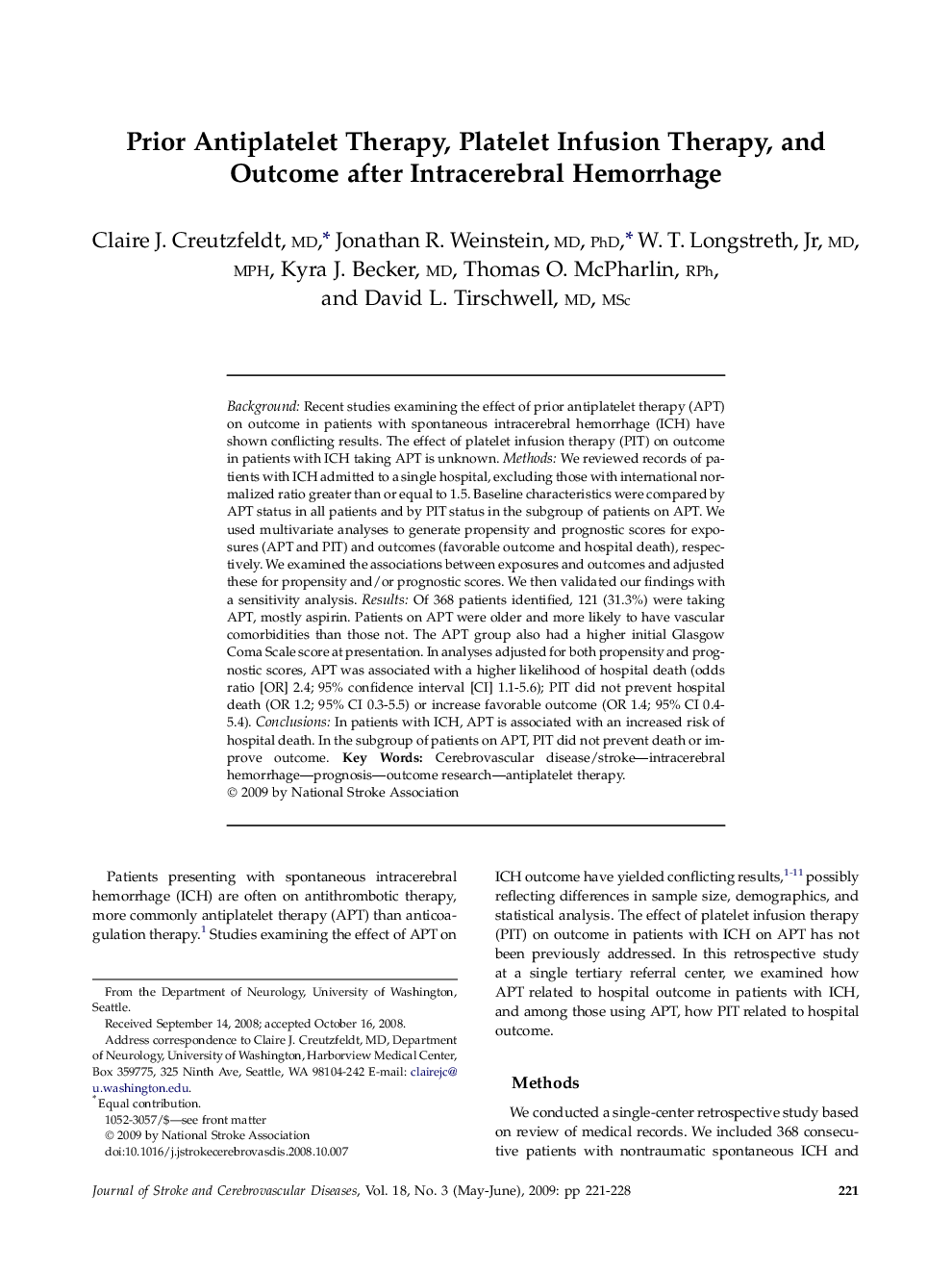| Article ID | Journal | Published Year | Pages | File Type |
|---|---|---|---|---|
| 2707482 | Journal of Stroke and Cerebrovascular Diseases | 2009 | 8 Pages |
BackgroundRecent studies examining the effect of prior antiplatelet therapy (APT) on outcome in patients with spontaneous intracerebral hemorrhage (ICH) have shown conflicting results. The effect of platelet infusion therapy (PIT) on outcome in patients with ICH taking APT is unknown.MethodsWe reviewed records of patients with ICH admitted to a single hospital, excluding those with international normalized ratio greater than or equal to 1.5. Baseline characteristics were compared by APT status in all patients and by PIT status in the subgroup of patients on APT. We used multivariate analyses to generate propensity and prognostic scores for exposures (APT and PIT) and outcomes (favorable outcome and hospital death), respectively. We examined the associations between exposures and outcomes and adjusted these for propensity and/or prognostic scores. We then validated our findings with a sensitivity analysis.ResultsOf 368 patients identified, 121 (31.3%) were taking APT, mostly aspirin. Patients on APT were older and more likely to have vascular comorbidities than those not. The APT group also had a higher initial Glasgow Coma Scale score at presentation. In analyses adjusted for both propensity and prognostic scores, APT was associated with a higher likelihood of hospital death (odds ratio [OR] 2.4; 95% confidence interval [CI] 1.1-5.6); PIT did not prevent hospital death (OR 1.2; 95% CI 0.3-5.5) or increase favorable outcome (OR 1.4; 95% CI 0.4-5.4).ConclusionsIn patients with ICH, APT is associated with an increased risk of hospital death. In the subgroup of patients on APT, PIT did not prevent death or improve outcome.
